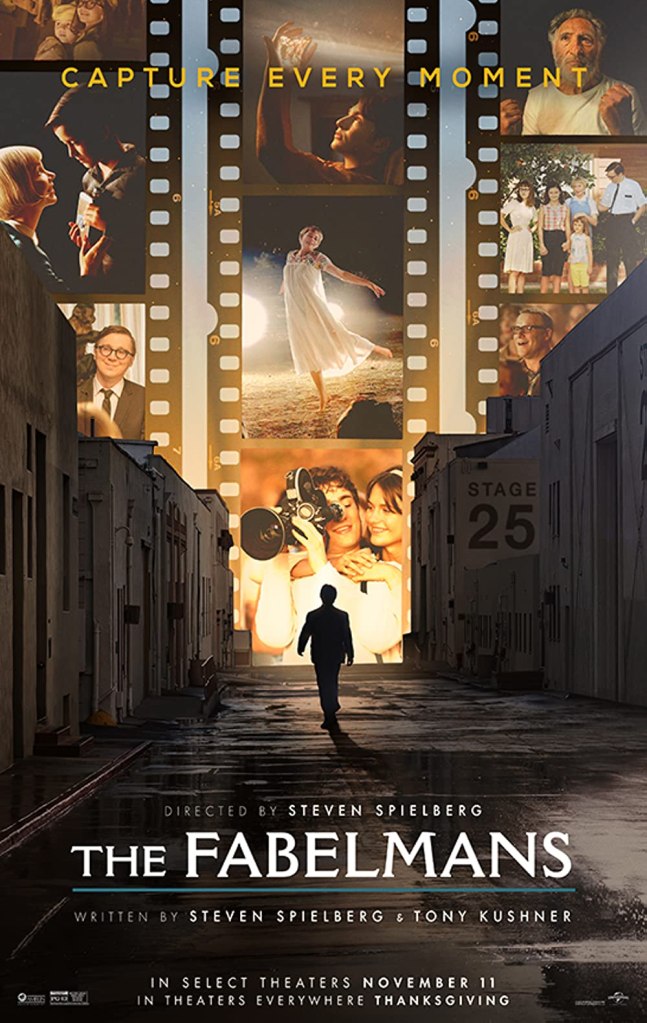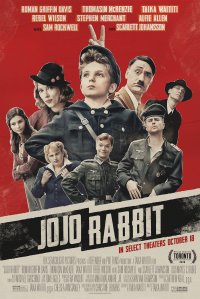An intimate portrait of an ultimately underwhelming quasi autobiographical story. Steven Spielberg’s The Fabelmans looks gorgeous and delivers a performative dimension with heart, but the story, largely inspired by his own life, struggles to capture the magic in which it so eagerly wants to wrap audiences. Tony Kushner’s screenplay, with story by Spielberg, starts and finishes well; however, the middle (or development stage) lacks focus and stakes, and even ventures into needless satire. If audiences are seeking a film about the transformative power of filmmaking and following one’s passion–despite the odds–then they will be better off with the Italian cinematic masterpiece Cinema Paradiso. This film is best experienced on the big screen because of the beautifully crafted cinematography, so if you plan to see it, do not wait for it to hit Peacock or Amazon Prime to view at home. Clearly this is the most personal motion picture from the king of the box office form the late mid 1970s to mid 1990s, but hopefully now that he has made his fictionalized autobiographical picture, he will get back to thrilling and entertaining audiences with pictures that are talked about decades later.
Young Sammy Fabelman (Gabriel LaBelle) falls in love with movies after his parents take him to see The Greatest Show on Earth. Armed with a camera, Sammy starts to make his own films at home, much to the delight of his supportive mother. But a dark family secret threatens his idyllic family.
While The Fabelmans attempts to inspire audiences through its central character of Sammy’s journey, audiences may find it difficult to connect with a central character from an upper middle, if not, upper class family that experiences fewer obstacles to the pursuance of art than does a typical working class individual. Why is this important? Because the film focuses on Sammy’s struggles (primarily during his teenage years). While Sammy certainly experiences emotional and psychological struggles, it’s difficult for audiences to connect with a central character that has far fewer financial and time obstacles than most people experience when pursuing passions. It’s far easier to pursue art as a career when sufficient financial backing is present. It’s characters that have to scrimp, save, and balance making a living while pursuing art (or other less conventional passions) that impact audiences most.
Michelle Williams (Mitzy, Sammy’s mom) delivers an outstanding performance! Moreover, Gabrielle LaBelle (Sammy), and the rest of the cast all display exceptional chemistry and dimension. There is a surprising cameo at the end of the film that is the icing on the cake of this exemplary cast. From the cast to the characters themselves, audiences will be impressed by the authenticity of the Fabelman family. Unfortunately, that same authenticity is not reflected in all the ancillary characters. Even in Spielberg’s big blockbuster films like Jaws, ET, and Jurassic Park, the cast is always excellent! That’s likely because each of the characters feels like an everyman, someone that could be you or someone in your life.
A closer look at the plot reveals a lack of a substantive goal(s) for Sammy. Fortunately, his mother Mitzy has a goal, but I won’t get into spoilers. Kushner’s screenplay neglects to provide Sammy’s outside/action story with high stakes. He’s never at risk of losing anything–personally–anyway. Therefore, he’s always in a safe position. One may be able to attempt an argument on losing his family, but that is more relational than an actual goal to achieve or fail to achieve. Dealing with life or a day in the life of are NOT plots nor goals. Aside from remaining alive, there is nothing measurable to gain or lose. For example, his goal could be to complete a particular picture or to land a job with a studio, but neither are that to which all the scenes point. Much like with many other movies and films as of late, this one isn’t written well. Lots of ideas, some of which are refreshing, but not woven together in a compelling narrative.
In terms of the relationship between Sammy and his camera, and Sammy and his family, I appreciate the film’s commentary on how a true artist experiences great pressure from family and friends as they work on their art. It can mean, making self-centered decisions that support the creation of art versus being emotionally or physically available to family and friends. Furthermore, the film teaches us that the camera itself never lies–it captures that which is placed in front of it–but it’s the editing (or montage) process that can selectively tell a particular story from the collection of raw footage. Sometimes the camera shows us things that we are afraid to confront otherwise.
Undoubtedly, there will be critics and general audiences that praise the film for being Spielberg’s most personal. And it is–but–therein lies part of the problem with the storytelling. A filmmaker directing a film that is ostensibly about their life demonstrates a huge ego trip. It also means everything that is dramatized is highly subjective, giving way to feelings weighing greater than facts. When a motion picture is biographical in nature (even when it’s a fictionalized account), audiences want to know how it really happened.
The middle of the film, specifically when Sammy’s Jewish family is relocated from their beloved Arizona to northern California, is plagued with caricatures of both school bullies and Christians. Due to the subjective nature of this narrative, one cannot help but wonder if the bullies were exaggerated and if the ridiculous level of cult-like fanaticism of his Christian girlfriend were misrepresented and mischaracterized for dramatic purposes. If Spielberg and Kushner were making fun of any other faith group, it would be seen as disrespectful. But they will get a pass because in Hollywood, it’s perfectly acceptable to make fun of members of the Christian community–but–completely unacceptable to stereotype or satire any other faith group or subset of the general population. If it’s evaluated as in poor taste to treat other groups with disrespect, then it should be viewed the same way here. Spielberg and Kushner could have found more tasteful ways to highlight the religious conflict in Sammy and his girlfriend’s relationship, and methods that were good-natured teasing or fun, but it was clearly more of an importance to show the girlfriend as a fanatic.
The opening sequences and scenes paired with the final scene of the film are thoughtfully crafted to transport audiences to a world of awe and wonder, and for those scenes, I applaud the film. Unfortunately, the film gets bogged down with a convoluted mess of ideas in the middle that do not add to the experience of the film, or send constructive messages to the audience.
Ryan teaches Film Studies and Screenwriting at the University of Tampa and is a member of the Critics Association of Central Florida. If you like this article, check out the others and FOLLOW this blog! Interested in Ryan making a guest appearance on your podcast or contributing to your website? Send him a DM on Twitter. If you’re ever in Tampa or Orlando, feel free to catch a movie with him.
Follow him on Twitter: RLTerry1





